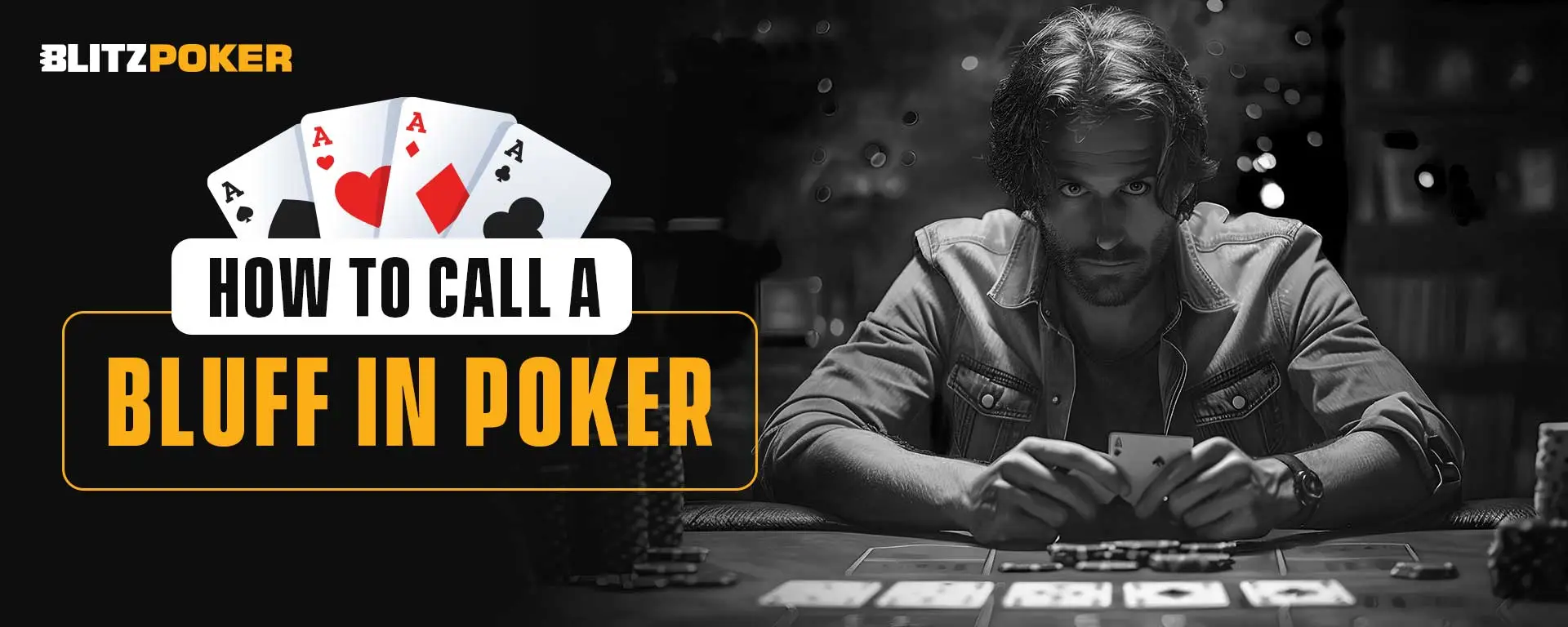How to Call a Bluff in Poker
“Call a bluff” is a phrase often used in card games, especially poker. It means challenging someone who might be pretending or lying about their hand or situation. Essentially, if you “call a bluff,” you are saying you don’t believe the other person’s claim or bet and want them to prove it. For example, if someone in a poker game bets a lot of money, implying they have a strong hand, but you suspect they might be bluffing (pretending to have better cards than they actually do), you might call their bluff. This means you match their bet and force them to show their cards. If they were indeed bluffing, they would lose the round. If they were not bluffing and had a strong hand, you might lose. Outside of card games, “calling a bluff” can be used more generally to describe a situation where you challenge someone to prove their claim or action is true. If you enjoy poker, you can experience the thrill of the game on BLITZPOKER, a poker platform that offers a variety of poker cash games and tournaments.
When Should One Call Their Opponent’s Bluff in Poker?
If you know your opponent has a weaker hand and is bluffing, you should always call. However, this is rare in practice. Usually, you suspect a bluff but aren’t sure. Then it’s a math question: is your opponent bluffing enough to make calling worth it?
When to Bluffcatch in Poker?
Theoretically, you need to win more often than your pot odds. For instance, if your opponent bets half the pot on the river, your pot odds are 25% (3:1). If you think they are bluffing over 25% of the time, it’s profitable to call with your bluffcatcher.
What Does ‘Call Someone’s Bluff’ Mean?
The term ‘call your bluff’ began in poker but is used outside the game. It means to challenge someone to follow through on their claim because you don’t believe they will.
How To Tell if My Opponent is Bluffing in Poker?
Sometimes a physical sign, like a nervous twitch, can reveal a bluff. But often, you can’t be 100% sure. Skilled players think in terms of probabilities, such as believing an opponent bluffs around 25% of the time in a specific situation.
Attention: We’ve got a detailed guide on bluffing and semi-bluffing your opponents in poker.
What Are the Best Times to Bluff in Poker
Pre-flop: Bluff when you’re in a late position and everyone before you has folded. The players to your left have been tight.
Post-flop: Bluff if you’re in the last position and everyone checks. The board is harmless, with no pairs and no card higher than a jack. Someone might have a strong hand, but others might have missed the flop and want to fold.
On a paired board: Bluff if the board shows a low pair (7s or lower) and it checks to you on the flop or turn. The other cards of the pair are likely in the deck or discarded, not in an opponent’s hand, especially if they checked both the flop and turn.
On the bubble: Bluff during a multi-table tournament near the money bubble. Players tighten up to make it to the cash. Target the short stacks who might bust out, as long as you have more chips than they do.
How to Tell a Bluff in Poker? | How to Tell Someone Is Bluffing?
When you’re trying to figure out if someone is bluffing in poker, there are many things you can look at. Firstly, pay attention if they talk a lot or act overly confident – it might mean they’re trying to hide a weak hand. On the other hand, making quick decisions, especially right after someone else’s move, could be a sign of bluffing, since strong hands usually require more thought. Also, keep an eye on how often a player raises after the flop – if it’s more than 20%, they might be bluffing a lot.
Looking at how often they aggressively bet after someone else’s raise can also give you clues, especially if they do it more often from certain positions. Additionally, inconsistencies in their story compared to what’s happening on the board could be a bluff. When players get emotional, especially if they’re angry, they might start bluffing recklessly, and unusually large bets could also be a sign of bluffing. And if they stare you down while making bold moves, they might be bluffing. Finally, if they raise after the flop shows a pair, or if they’re generally very aggressive, it could be a bluff. By paying attention to these things, you can better judge if your opponents are bluffing.
Can Anyone Call in Bluff?
Absolutely! Anyone at the poker table (as far as they are in the game and have not folded) can call a bluff if they suspect another player is trying to deceive them. It’s all part of the game’s strategy and psychology. If a player believes their opponent is bluffing based on their actions, betting patterns, or other cues, they can choose to call their bluff by matching the bet and revealing their hand during the showdown. However, calling a bluff comes with its own risks, as players must be confident in their read of the situation and willing to potentially lose their chips if they’re wrong
